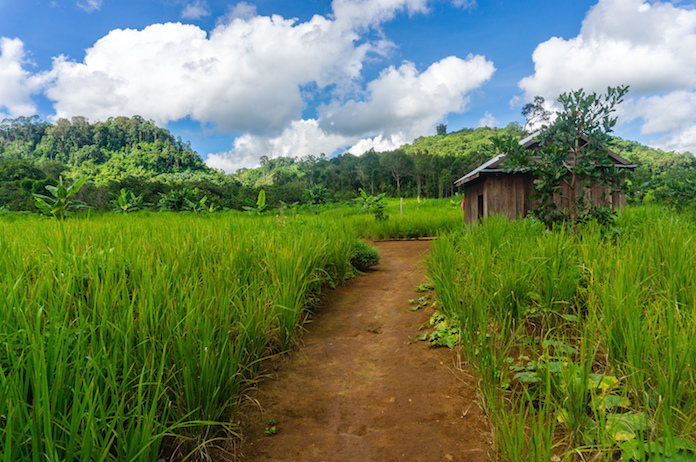Owning Land In Cambodia As A Foreigner

One of the most common questions real estate agents in Cambodia hear from would-be property buyers is Can foreigners own land in the Kingdom? The simple answer is no. Generally-speaking, under Article 44 of the Constitution, foreigners cannot own land in this country.
However, if you are itching for your very own portion of the Kingdom, be it for property development, agriculture, or to simply build yourself a new home, don’t despair just yet: there are some ways in which foreigners can establish legal ownership land here. B2B Cambodia, with the help of the content team at Realestate.com.kh, shows you how:
Forming a holding company
Foreigners can form a limited liability company or a private limited company with a Cambodian citizen if they want to own land in Cambodia. However, keep in mind that the Cambodian partner must own at least 51 percent of the land holding company (LHC). According to our sources, outside of obtaining Cambodian citizenship, this is currently the most secure form of property ownership available to foreigners. Investors may be hesitant to choose this option, however, as a minority stake in the company appears to remove their control over the business assets. A meticulous allocation of the shares and a careful draft of the rights attached to the share certificates should take care of the problem.
“An LHC is set up in such a manner whereas the minority shareholder (the foreigner) have all the decision making rights within the company whereas the majority shareholder has extremely limited rights and power,” says Grant Fitzgerald, country manager at IPS Cambodia. The main drawbacks of an LHC are that it is very costly to set up and maintain – approximately $10,000 plus set up fees. There are also relatively high rental income taxes. In addition, when you dispose of the assets, you are subject to 20 percent profit tax. Given these elevated costs, Fitzgerald says IPS Cambodia doesn’t usually recommend this structure for land purchases under $1 million.
Leasing
For some foreign investors, leasing the land might be a much better option than buying it. Purchasing land may not be exactly the same as leasing it, but it’s probably the next best thing. It’s easier and less expensive than setting up a company to buy land. However, to comply with the law, foreigners need to allow the registered title deed to remain under the name of a Cambodian citizen, with both parties formally entering a long-term rental agreement. The obvious downside to this method is that you still do not hold full ownership over the land, which increases the uncertainty of your investment. However, careful drafting of property holding and lease arrangements terms should help make this a secure way of gaining control over your property. Leases generally last for 50 years, 70 years, or in some cases 99 years. Long-term leases allow all rights for development of the land, though the lessee is still required to obtain the necessary construction permissions. Leases also ensure that the foreigners involved will be able to sell the property and keep all of the sales revenue.
Registering a property
This method, also known as the nominee structure, involves the foreign investor signing a trust agreement with the landholder, guaranteeing to hold the land on their behalf. The owner then mortgages that land and leases it to the investor. Buying in a local’s name is very easy and is the most inexpensive means of controlling Cambodian land. When setup correctly, it is also very secure and provides the foreigner with multiple layers of protection, says Fitzgerald. When buying land through this structure, be careful about who you choose as your nominee. Using a friend or spouse may prove troublesome, as it’s not uncommon for these personal relationships to go sour. Fitzgerald recommends using a “professional nominee” from a trusted service provider. This reduces the risk by keeping the relationship purely professional, and having the nominee being incentivized to stick to all agreed terms and conditions. Buyers should also ensure that they secure the relationship with the nominee through the correct security agreements, including mortgage, loan and lease agreements. These documents restrict the nominee from selling or disposing of the property without the other party’s permission. It should be noted that some consulted experts say this option actually stands in violation to the constitutional prohibition of direct ownership of property by foreigners, and advise against it.
Cambodia citizenship
The Government bestows honorary Cambodian citizenships which allows individuals to purchase land. They can be obtained by making a donation of at least $312,500 to the state, or by making some other notable contribution to the development of the nation. Before settling down for any of the options listed above, B2B Cambodia recommends conducting proper due diligence on any potential business partner and seeking the services of a specialised law firm.
Cambodian marriage
Foreigners married to a Cambodian citizen are allowed to register real property using the name of their spouse on the title deed. Additionally, if a foreigner has been granted citizenship by the government, the Cambodian Law allows for the land to be registered under his/her name and that of the spouse.